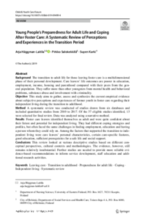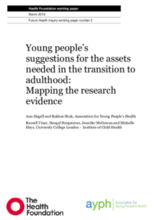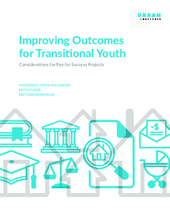Displaying 491 - 500 of 991
This book offers a comprehensive overview of the newest contributions to the literature on leaving care in relation to theory, in addition to the Theory of Emerging Adulthood, while also featuring cutting-edge research and best practices that support adjustment across a range of domains for this population.
This open access study aims to gather, assess and synthesize the current empirical evidence about subjective perceptions and experiences of former youth in foster care regarding their independent living during the transition to adulthood.
The increasing importance of higher levels of formal education and training leads to an extended transition phase to adulthood in Austria. This article explores how care leavers are confronted with new disadvantages and with a lack of political and societal attention.
This presentation is the result of a critical discourse analysis study which explored the stories–through interviews, observations, and journals–of three young adult women who aged out of the foster care system in a region of Central Tennessee.
This paper explores care leavers’ needs and priorities from the perspective of self-determination theory (SDT), which relates the individual’s motivation to the human need for competence, relatedness and autonomy.
This paper explores the extent to which the existing research literature has addressed four key assets to a successful transition to adulthood identified by care-experienced young people - skills and qualifications, personal connections, financial and practical support, and emotional support - and if so, what it showed about the asset’s role in a transition to adulthood.
This chapter’s authors argue that social policy on leaving care is a critical resilience process for promoting care leavers’ successful transition toward emerging adulthood.
This brief summarizes insights drawn from Community of Practice conversations and provides recommendations for local governments, service providers, and other partners considering Pay for success (PFS) as a tool for financing interventions serving transitional youth.
This article explores the agency enablers and the factors which hinder adolescents and emerging adults transitioning from care to adulthood, with an emphasis on the transition into work taking a case study of the Uganda Youth Development Link.
This paper reports on the initial formative phase of a pilot feasibility randomised controlled trial; SOLID (Supporting Looked After Children and Care Leavers In Decreasing Drugs, and Alcohol) that aimed to adapt two evidence-based psychosocial interventions, Motivational Enhancement Therapy and Social Behaviour and Network Therapy, which will aim to reduce substance misuse by looked after children.




